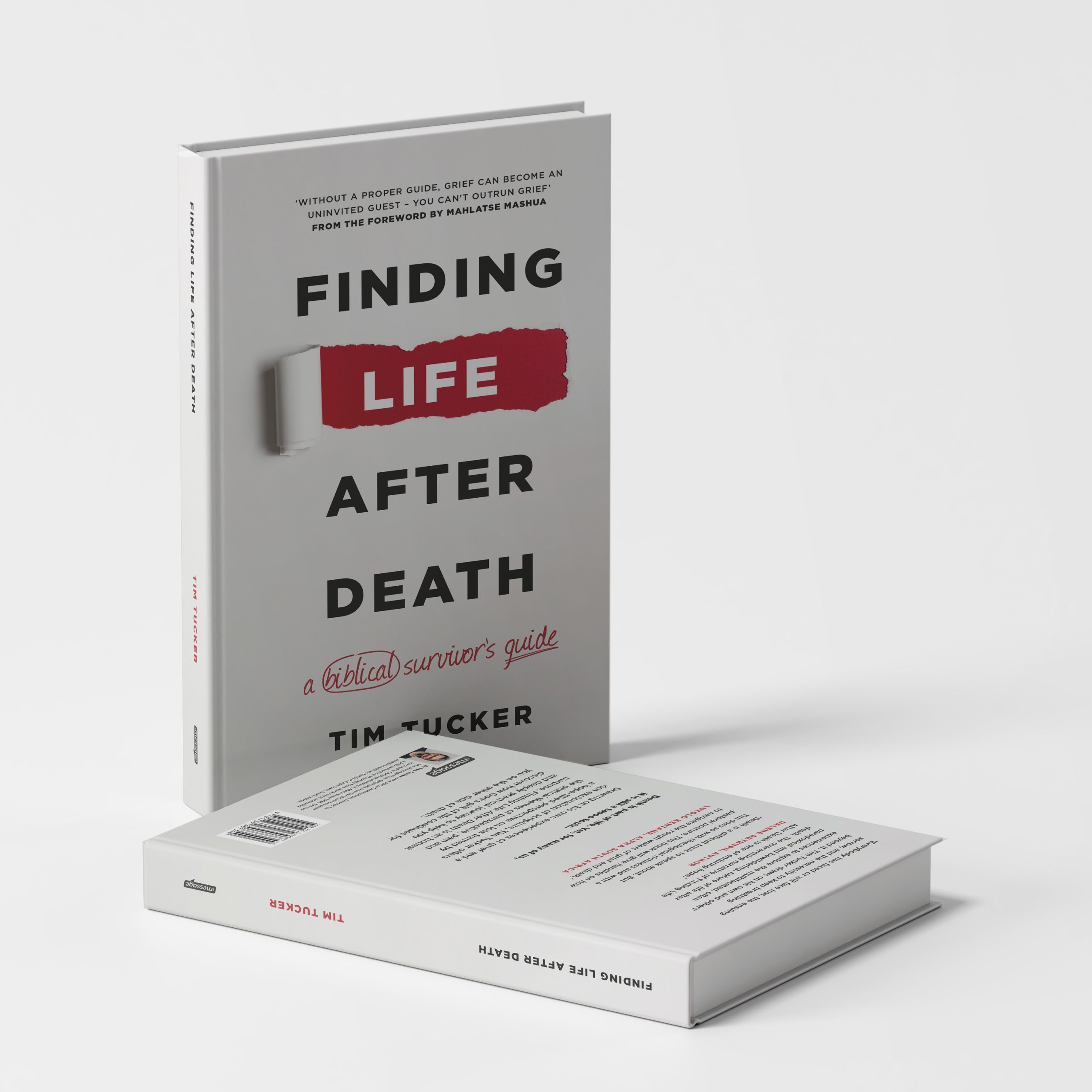Leading and Grieving
In 2016 my wife died suddenly and unexpectedly from a brain aneurysm aged 38 years of age. I was left with three children and a gaping hole in my heart. I have written about my journey through deep grief in my book Grief and Grace, Facing the Future I Didn’t Choose.
In reflecting on my journey, I have become surprised by how few Christian leaders write, speak, and preach on death, dying and grieving?
Other than at funerals, how many sermons do we hear on death? Just consider it. How many Bible studies, conferences, retreats, or concerts have you attended that have had death as their central theme? Yes, there are resources for those going through grief, but should we be waiting for disaster to happen before addressing the subject? Surely, as leaders, we need to be more proactive. Death is part of life which means it’s part of our discipleship. Therefore, we need to talk about death!
In particular, I believe that as Christian leaders we need to be equipping ourselves in this area. After all, this is a primary way in which our biblical perspective should stand out in a world of questions about suffering and death.
It seems to me that Christians give mixed messages when talking about death. We either super-spiritualise it and focus on the eternal hope we have at the expense of recognising the trauma that death does bring. Ultimately this can be an avoidance mechanism that prevents us from dealing with the grief of losing a loved one. Or we slump into despair, even to the extent of questioning our faith and the goodness of God.
The biblical perspective is not an either/or, but far more nuanced, holding these two extremes, super-spiritualisation and despair, in tension. The biblical perspective lies somewhere in the murkier space of balancing the hope we have that Jesus has conquered death, with the reality that death is a brutal invasion into our lives, one that God never intended for us.
If you are a Christian leader, then it is inevitable that there are two challenges you are going to face at some point in your leadership.
Firstly, the challenge of leading the grieving.
Whether the death of a loved one or another form of deep loss, the people we lead are grieving. As biblical leaders we cannot bury our heads in the sand and ignore the brokenness that people carry. The Bible is not reticent to speak about death. God has no issue with addressing the subject of death. In fact, one might argue that the Bible is given to us as God’s response to the challenge of death. The task at hand is to develop a robust biblical perspective so that we can compassionately care for those under our care who are grieving while sensitively directing people to the redeeming purposes of God. The bible gives us many examples of how not to do this (e.g. Job’s friends) as well as providing guidance on how to mourn with those who mourn (e.g. Jesus with Martha and Mary). Exploring scripture through the lens of uncovering how to lead the grieving is an important journey I encourage all leaders to take.
The second challenge is leading while grieving.
In 1 Peter 1:3, Peter glories in the living hope we have through Christ’s resurrection. In verses 4 and 5 he goes on to underline the promise of this new life, that it is an inheritance that can never spoil or fade and one that is protected by God himself. Nothing and no one can take it from us. Verse 6 starts with rejoicing, before giving us a reality check: ‘Though now for a little while you may have had to suffer grief in all kinds of trials.’ Oh, Peter! Please can we skip that part? Wouldn’t it be nice if we could jump straight from salvation into glory? The implication is clear. No one is immune. As leaders who trust in God’s word, we must prepare ourselves that we too will face griefs of many kinds. This is where the rubber hits the road. How do we continue to lead when we are feeling the sting of death?
Clearly, there is a time when we need to step back and allow God to bring us a measure of healing. I took an extended break from my daily leadership responsibilities when my wife died. However, this phase quickly came to an end, and I needed to learn to lead even with a heavy heart.
George Matheson was a 19th-century pastor and hymn writer. Blind from his youth and having faced grief, loss, and disappointments of many kinds, he was a man who was familiar with the challenges of suffering. He wrote:
‘Many of us would tearlessly deal with our grief if only we were allowed to do it in private, yet what is so difficult is that most of us are called to exercise patience, not in a bed, but in the open street for all to see. We are called upon to bury our sorrows not in restful inactivity but in active service; in our workplace, while shopping and doing social events… No other way of bearing sorrow is as difficult as this, for it is truly what is meant by running with patience.’
Matheson is highlighting the challenge of navigating public and private grief. The only way we can manage this as leaders is to acknowledge that this is a challenge too difficult to bear and learn the same lesson that Jesus taught Paul, “My grace is sufficient for you, for my power is made perfect in weakness” (2 Cor. 12:9). From this perspective we can boldly state that the world needs to see grieving Christian leaders still lead! Grief does not disqualify us from leadership. Rather, persevering through grief can often result in Christian leaders having a greater impact because they lead from a place of weakness and full reliance on the grace of Jesus. This is counter-cultural, and entirely scriptural.
Having said that, a biblical perspective on grief leads me to understand that we are not meant to carry these burdens alone. The only way I could lead with a heavy heart was through the love and support of close friends who helped me practically and spiritually in numerous ways. As leaders we carry many burdens, including our grief, loss, and failings, therefore it’s imperative that we do not hide these away from others but have a community of praying believers who are standing with us and continually pointing us to Jesus. This is the only way we can still lead while we grieve.
This article has been written to help stimulate thought and conversation around the subject of death and grief. It is not intended to be exhaustive. However, I’d like to point you to my new book, Finding Life After Death: a biblical survivor’s guide which offers a hope-filled view on loss framed by the biblical themes of perspective, pain and purpose.
Please see my website www.griefandgrace.org for more resources and information.
This article was previously published on Biblicalleadership.com


